Search Results for: guidelines
This study was part of a 3-year (October 2019–October 2022) project called The Heightening Institutional Capacity for Government Use of Health Research (HIGH-Res) conducted in Kenya, Malawi and Uganda. The study was implemented to test interventions that strengthen the capacity of TWGs in enabling a sustained evidence use culture in the MoHs. This study focused on TWGs within the Ministry of Health (MoH) in Malawi, categorized as a low-income country in sub-Saharan Africa. The Ministry is responsible for developing, reviewing and enforcing health-related policies and standards for the health sector. The MoH performs its functions through 14 directorates, including a […]
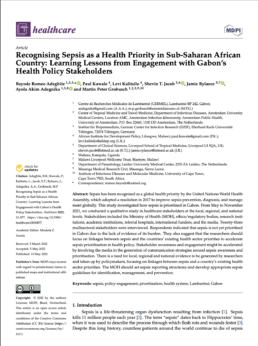
Sepsis has been recognised as a global health priority by the United Nations World Health Assembly, which adopted a resolution in 2017 to improve sepsis prevention, diagnosis, and management globally. This study investigated how sepsis is prioritised in Gabon. From May to November 2021, we conducted a qualitative study in healthcare stakeholders at the local, regional, and national levels. Stakeholders included the Ministry of Health (MOH), ethics/regulatory bodies, research institutions, academic institutions, referral hospitals, international funders, and the media. Twenty-three multisectoral stakeholders were interviewed. Respondents indicated that sepsis is not yet prioritised in Gabon due to the lack of evidence […]
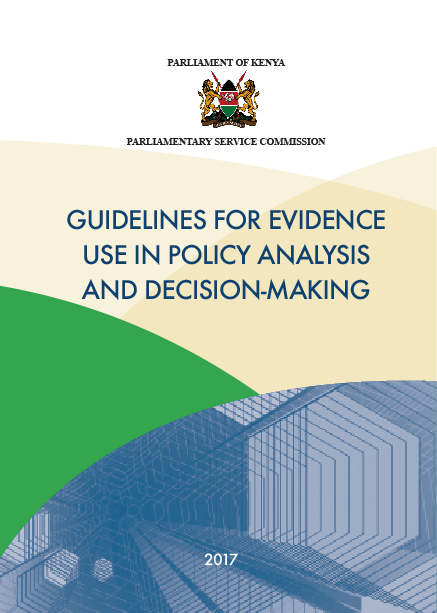
These Guidelines for Evidence Use in Policy Analysis and Decision-Making have been developed to provide practical guidance to technical staff and Members of Parliament on better and more effective ways of finding, appraising, synthesising and applying research evidence in policy analysis and decision-making. The Guidelines therefore make a significant contribution towards enabling Parliament to effectively deliver its core functions of oversight, legislation, budgeting and representation, given the critical role of information, including scientific and other types of evidence, in the delivery of these functions.
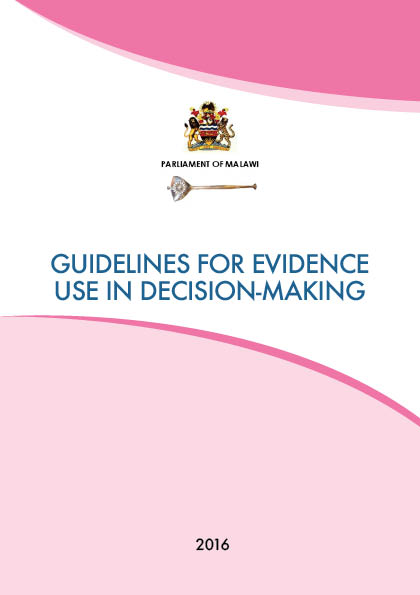
The development of these Guidelines was made possible through the Malawi Parliament’s collaboration with the Strengthening Capacity to Use Research Evidence in Health Policy (SECURE Health) programme, which is a consortium of five organisations led by African Institute for Development Policy (AFIDEP). The development of the guidelines has been informed by the Malawi Government’s provisions and guidance contained in the Malawi Constitution, the Attorney General’s Memorandum, the Guide to Executive Decision-Making Processes, the Standing Orders of Parliament, and the Malawi National Assembly Strategic Plan (2015-2020).

These Guidelines for Evidence Use in Policy-Making have been developed to provide practical guidance to health sector stakeholders on better and more effective ways of finding, appraising, synthesising and applying research evidence in policy-making. The Guidelines therefore make an important contribution to the realisation of one of the Ministry of Health’s (MoH) commitments in the Kenya Health Policy 2014-2030 of increasing use of research evidence in decision-making in the health sector.
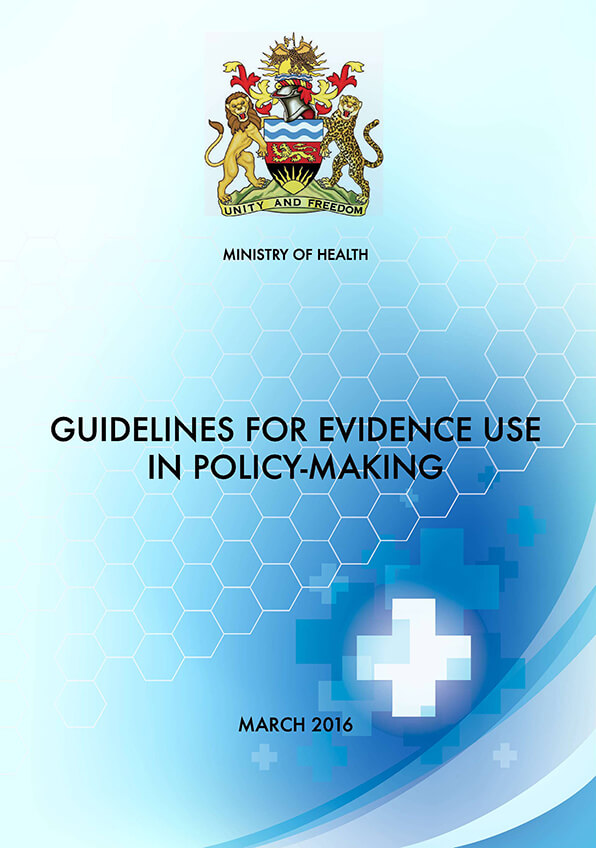
The need for guidelines for evidence use in decision-making in the health sector has been identified by the Ministry of Health (MoH)’s senior officials and staff through interactions with the Strengthening Capacity to Use Evidence in Health Policy (SECURE Health) programme. The results of a study conducted by the SECURE Health Programme in 2014 on the status of research use within the MoH and Parliament, and an initial external evaluation of the SECURE Health programme conducted in 2015 have revealed a need for guidelines on policymaking and evidence use within the Ministry.
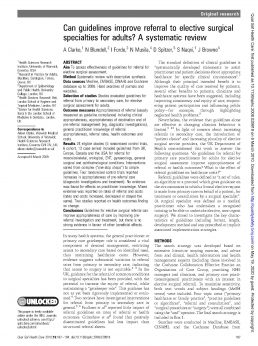
The aim of this study was to assess effectiveness of guidelines for referral for elective surgical assessment using systematic review with descriptive synthesis. The article concludes that guidelines for elective surgical referral can improve appropriateness of care by improving pre-referral investigation and treatment, but there is no strong evidence in favour of other beneficial effects.
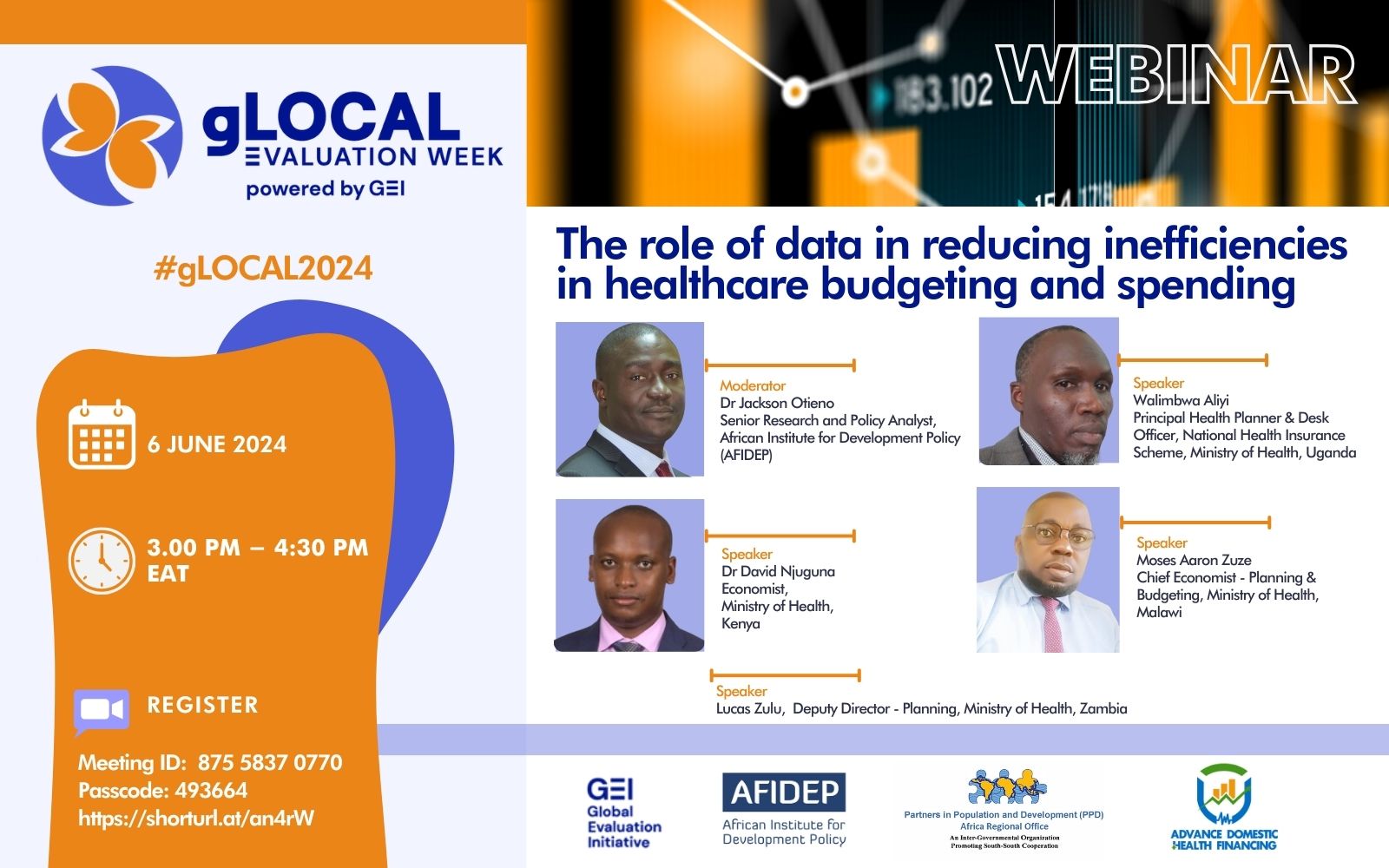
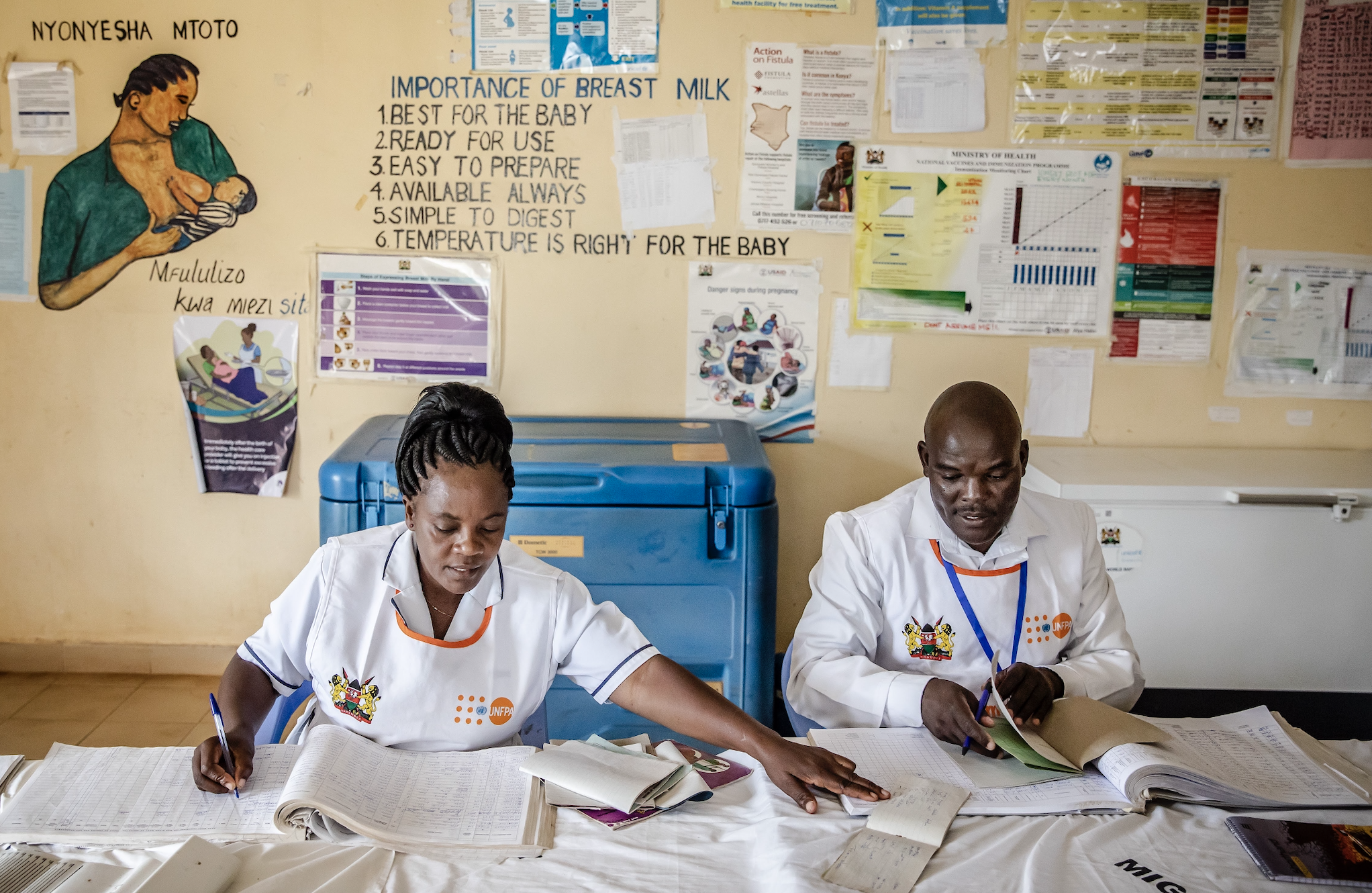
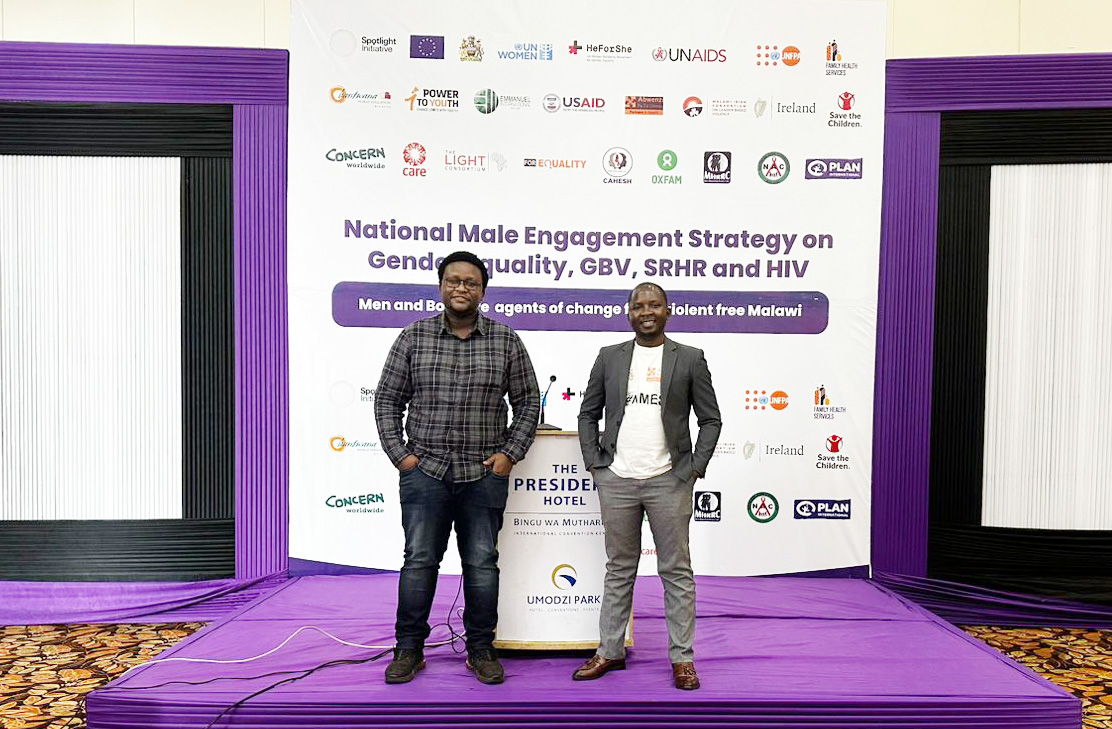
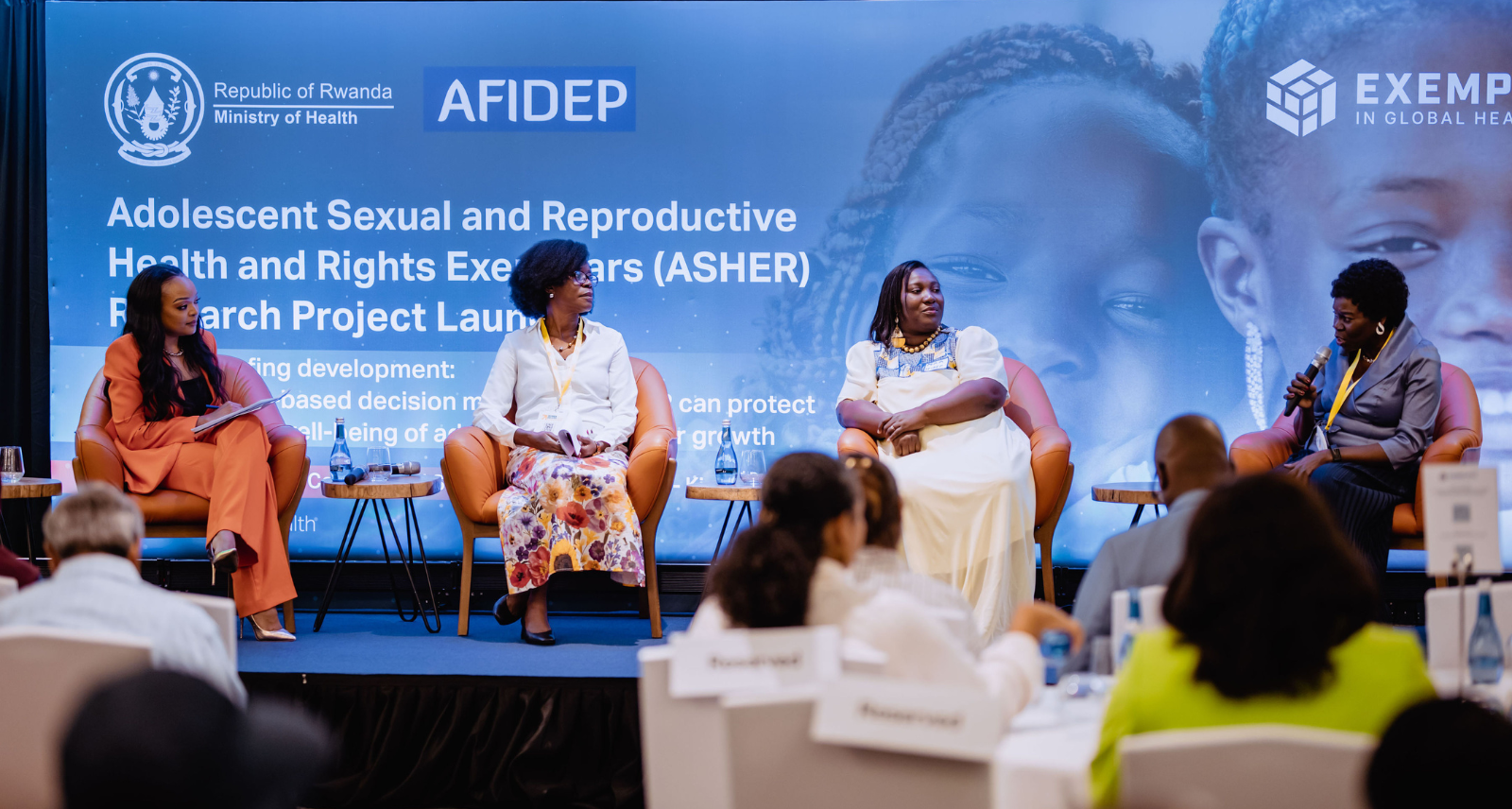




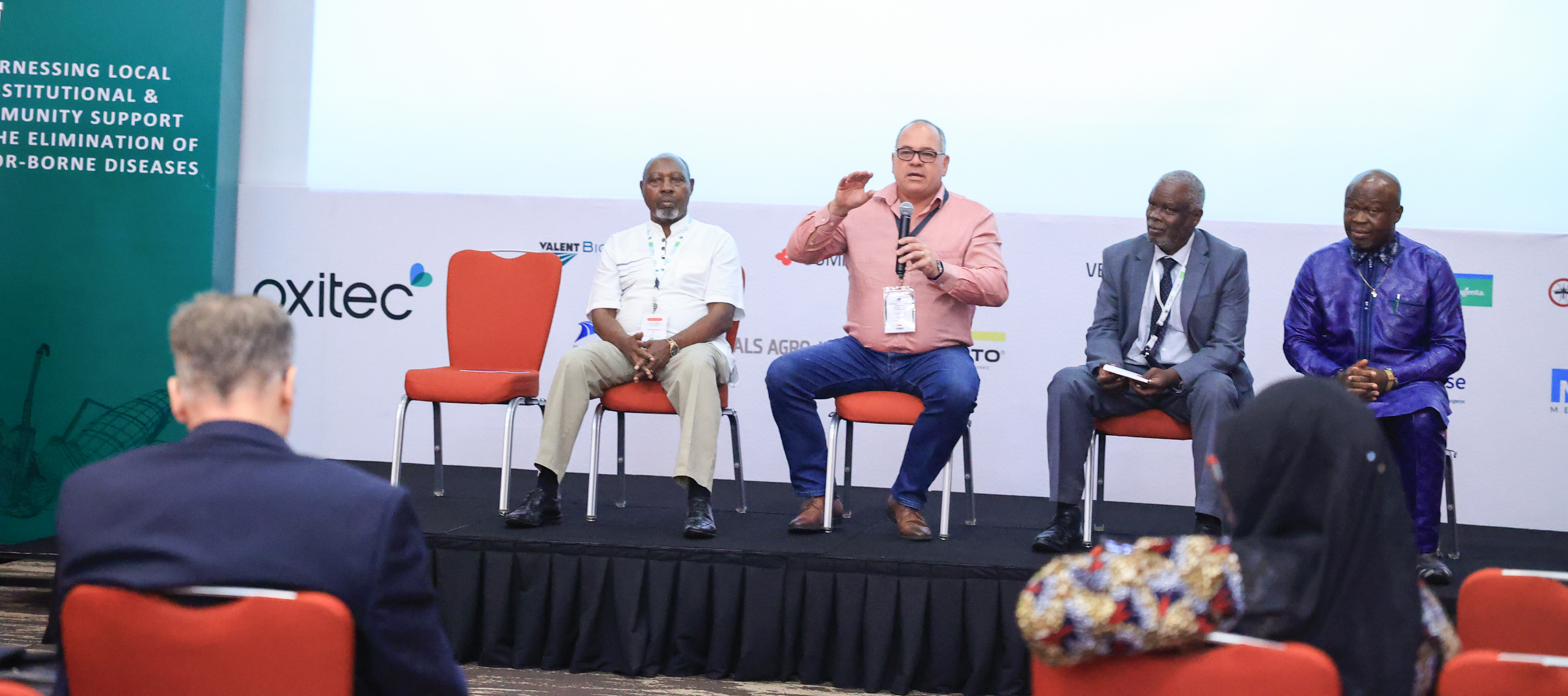
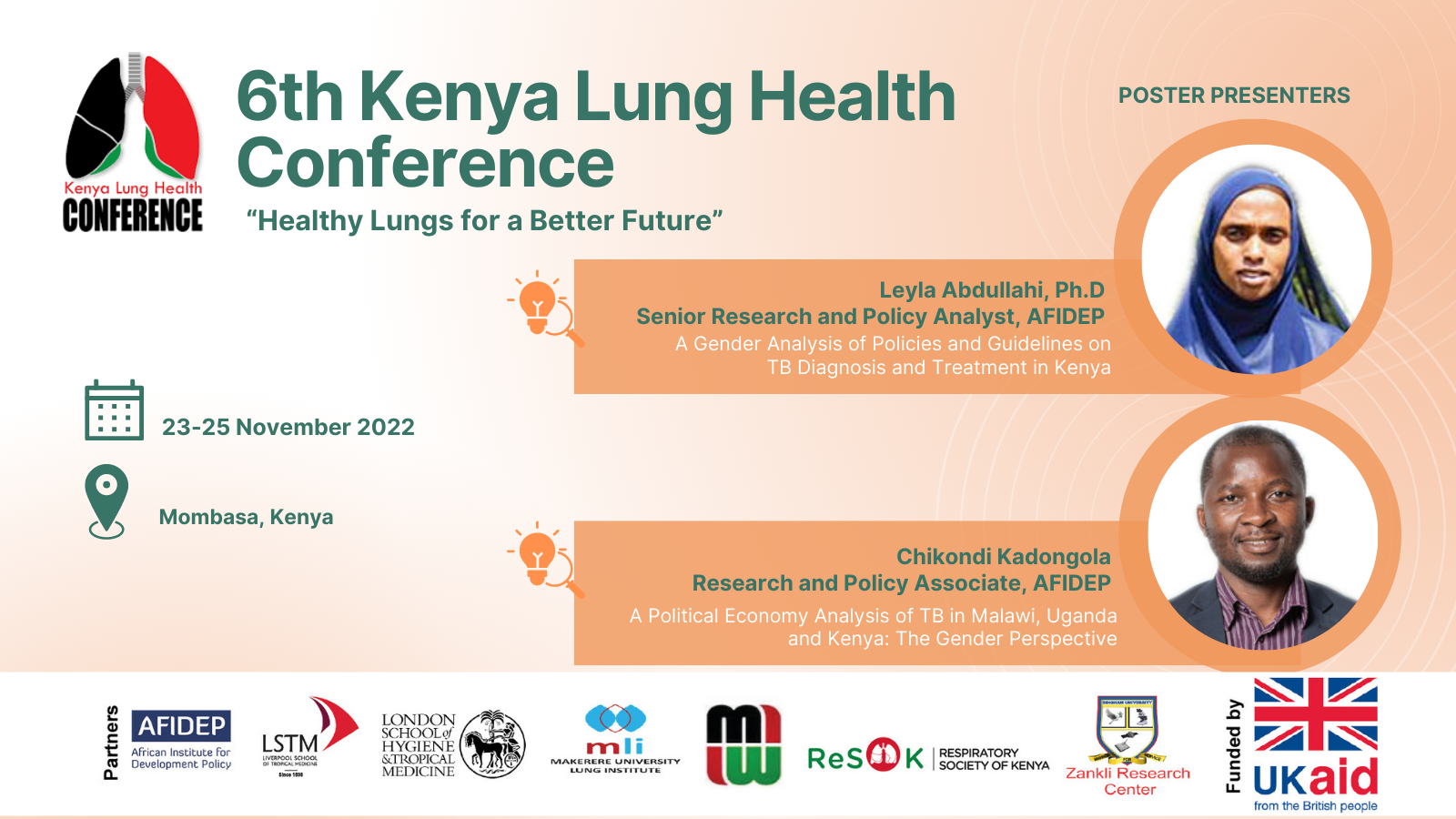
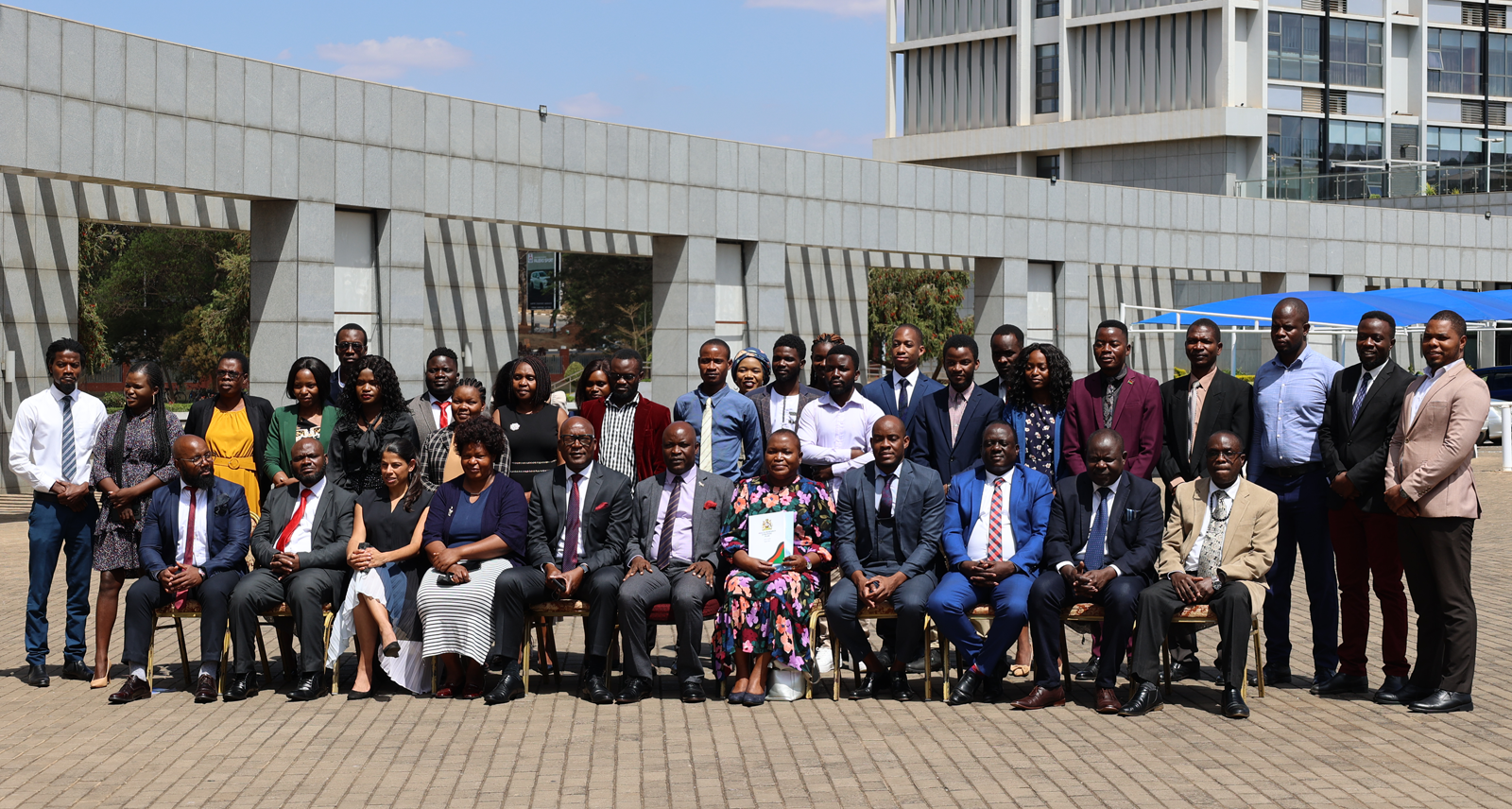
Jun 2023
Nov 2020



